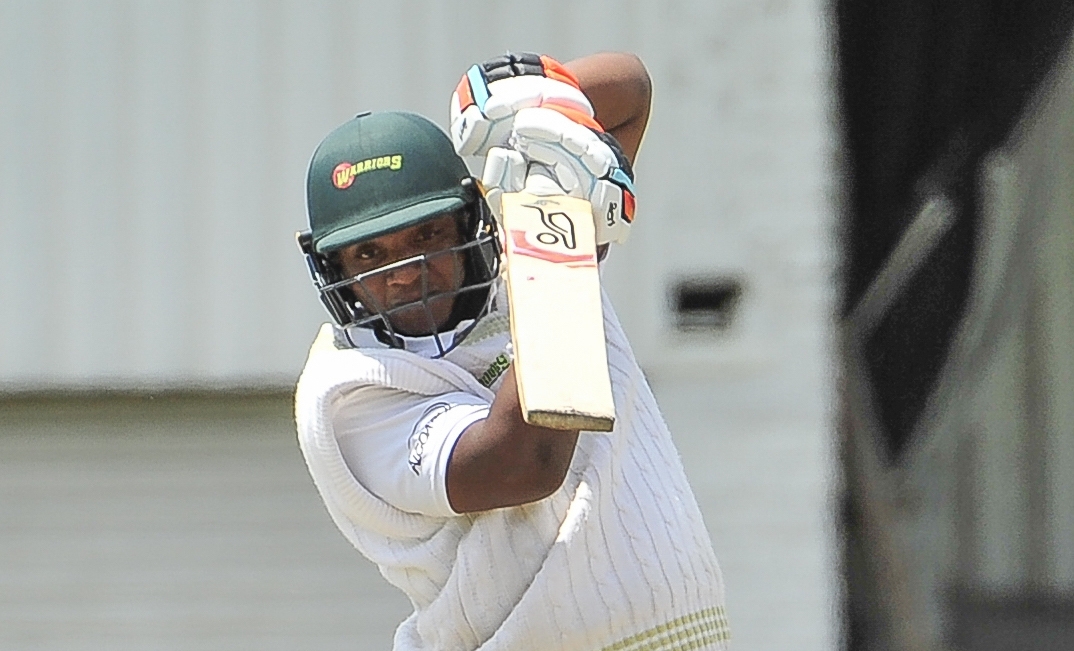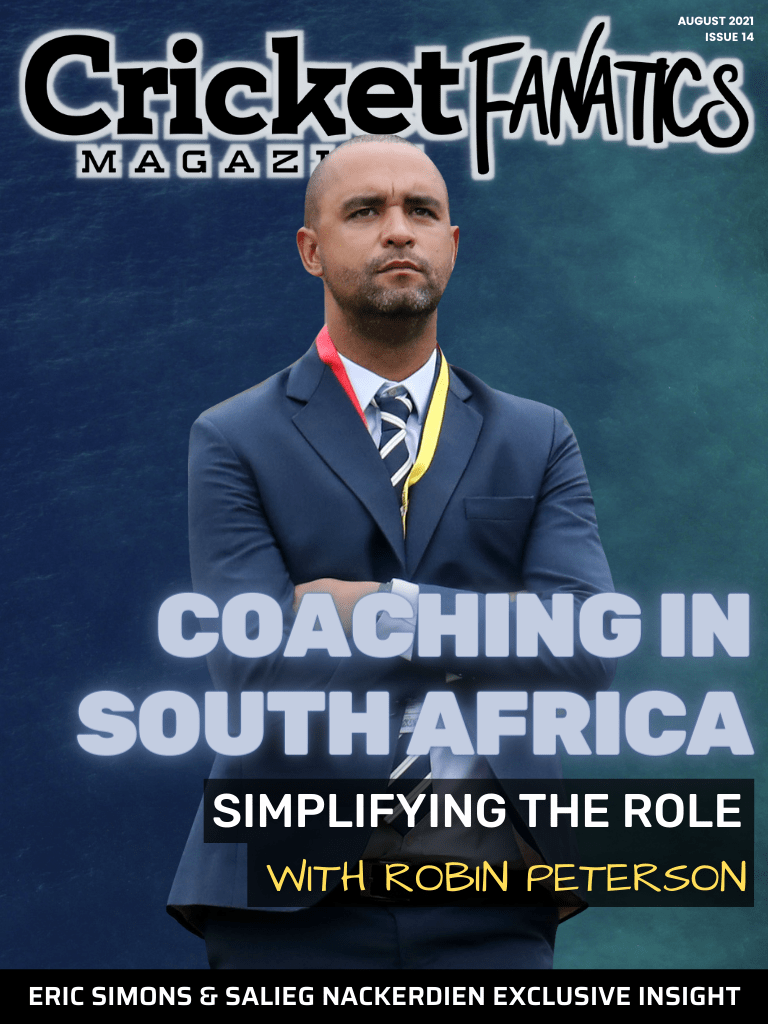
Table of Contents
EDITOR'S NOTE
Coaching in South Africa
Khalid Mohidin
Founder and Editor - Cricket Fanatics Magazine
Cricket is considered an individualistic team sport.
In this sport, coaches have to go beyond tactics and game plans to build a successful team.
People management and mental development are crucial to the role, and I don't think we give our coaches enough credit.
South Africa has its own challenges. For coaches to make an impact they have to carry a lot of responsibility on their shoulders. This is particularly the case when trying to develop the next generation of stars.
I think it is long overdue that we shed the light on coaching and hear from some of the top coaches in the game today.
In this issue, we focus on Coaching in South Africa. We gain insights from coaches who have experienced playing and coaching at different levels – School, Club, University, Domestic and International.
We aim to simplify coaching to give you a better understanding of the role. So sit back, grab a beverage and a snack, and enjoy issue 14 of Cricket Fanatics Magazine.

BECOME A PATRON
By Khalid Mohidin
A very special announcement that I believe will change the face of the way cricket is supported in South Africa.
Hey, guys! Welcome to Cricket Fanatics Magazine. I would like to welcome you to the first and only fan-driven Cricket publication in South Africa.
I started this venture on 1 July 2019 with a vision to get fans from all walks of life engaged with the game and the personalities in cricket.
We want to tell the untold stories of South African cricket and we want fans to be heard.
Since we started, we covered the Mzansi Super League, Women’s Super League, Proteas Men and Women International Test, ODI and T20I series, as well as school and club cricket, with the aim of providing entertaining, engaging and educational content.
But hasn’t stopped there.
We started a Monthly Magazine where we provide multi-media content, including exclusive features, opinion pieces and analysis.
This works hand-in-hand with our YouTube channel where we produce unique cricket shows that allow fans to call in and have their say.
We have the Daily Show, which reveals all the major talking points in South African cricket.The Sunday Podcast Show where we sit back, relax and engage with the live chat, answering all the questions fans have about us and the game.
We have Off-Side Maidens, the first ever All-Women’s Cricket Show on YouTube, which helps empower women in cricket and gives them a place to share their own views on not only women’s cricket but all cricket.
We have a Legends show, where we interview all legends in cricket.
To produce all of this, we’ve invested a lot of money, time and effort to bring this to you for free.
But to keep this going we need your help. So we have opened a Patreon account.
Today, we are fortunate that technology has enabled anyone to become a patron of creative work, even if they are not a billionaire.
We have therefore launched a campaign for you as a Cricket Fan to become a patron and support us as an independent, bootstrapped publisher.
As a Patron, you also get your voice heard as a Fan.
Plus: You have the opportunity to become more engaged with the content we produce.
Every month we produce at least:
- 60 Website Articles
- 20 Daily Video Shows
- 4 Weekly Podcasts
- Match Previews
- Match Reviews
- Video Interviews
- And more…
So please join our Patreon today.
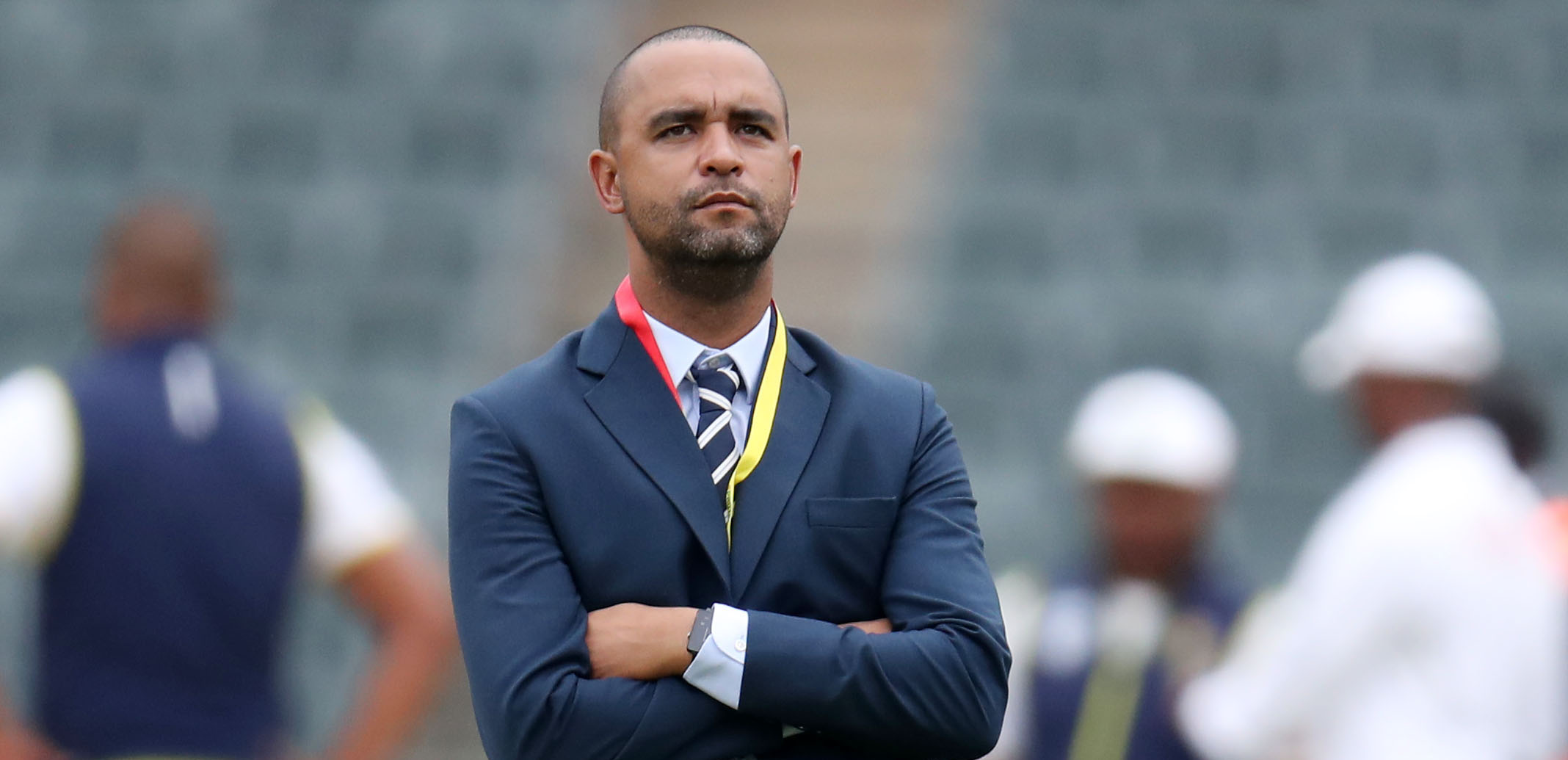
Simplifying Coaching with Robin Peterson
By Ongama Gcwabe
Coaching is mostly made to seem complicated and sophisticated but Eastern Province Coach, Robin Peterson, simplifies the job to just teaching his players about the life and journey of a cricketer.
The most important job in sport is that of a coach whose influence can make or break the team.
‘Coaching in South Africa’ has always been a topic that fascinates me mainly because South Africa is not the same as other cricket playing nations due to our dark history.
I’m particularly interested because I am a Network Marketer which is centred around forming relationships and building teams.
I called upon former Proteas all-rounder, now Eastern Province coach, Robin Peterson to better understand coaching in SA and his approach.
“What I try to teach these guys is that there’s no linear approach,” Peterson told Cricket Fanatics Magazine.
“You’ve got to teach them about the life and journey of a cricketer. It’s not always a case where you score hundreds all the time, sometimes you fall off the cliff, then you have to climb up and you get to the top of the mountain and you get pulled down a little bit.
“So you just try and explain this process of a cricketer and what it takes to have a long career to these players; failure is part of the journey.”
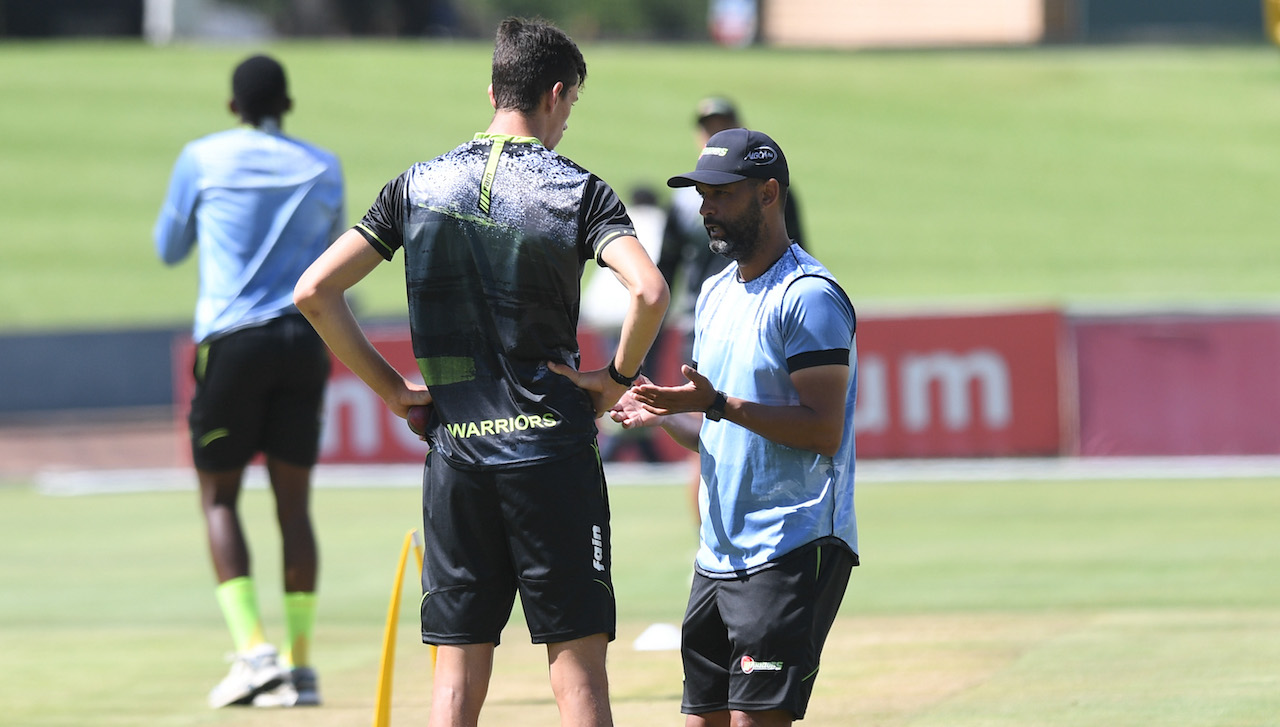
This hit the spot so much because I relate to it. The best way to lead is to teach about the journey that lies ahead and how to be prepared for the challenges that lie ahead and also make sense of how the past experiences form part of the journey.
At the end of the day, all Division One coaches have a duty to produce cricketers who are ready for International Cricket should an opportunity present itself. Or is it only on a player to make sure they’re ready for a national call up?
“I think it’s not only my responsibility [as a coach]. The player needs to understand that it is also your responsibility to succeed,” said Peterson.
“Players need to accept responsibility and take accountability for their careers. It can’t just be: ‘I’m not playing because that coach doesn’t like me.’ Because I hear stuff like that too often in the system.
“So ultimately, at the end of the day, it’s what you do with it. This means the responsibility is on you to become a better player. It’s also on you [the Player] and me as a coach to deliver performances."
The players Peterson is working with are among a few players with one foot-in at the national team. My question to him was – ‘What is your focus given that you’re working with some of the youngest, most talented cricketers like Sine Qeshile?’
“So my focus will probably be – I want to get these kids to think more Test cricket and how they can challenge themselves to bat for a day,” Peterson replied.
“Has Sine Qeshile batted for a day? How many times has he batted for a day? He has to bat for a day consistently if he wants to play Test cricket. Kabelo Sekhukhune, he’s got to bat, learn how to bat for the whole day if he wants to make it at Test cricket.
“So these are the things that you’ve got to start opening up their minds to and get them to ask themselves – ‘Can I do that? What do I need to do to do that? What needs to happen now, coach? How can we put the strategy in place? Give me the best chance to do that.’
“Because at the end of the day, I'm not holding the bat there for you, (I’m not) holding the ball for you and I'm not catching for you. So that's why I say it's a two-way thing at the end of the day."
One of the toughest tasks I think South African coaches have is to play some role in keeping their players playing in South Africa with the objective of representing the country someday.
As fans, we’ve seen many talented cricketers leave our shores for a host of different reasons, one common reason is a lack of opportunity in the national team which then encourages players to go abroad.
We saw this with the likes of Colin Ackerman who performed domestically year-in and year-out but never got an opportunity to play for the Proteas.
I think the departure of David Bedingham more recently hurt quite a lot of fans around the country and even more so his then-coach Ashwell Prince.
When I look at the Eastern Province squad for the 2021/22 season, it wouldn’t surprise me if Eddie Moore looks for playing opportunities elsewhere.
“As I said, you’ve got to be ready when that opportunity comes, you’ve got to make sure that you're getting runs, you know, when you get your chance you must perform. You can't decide that I'm losing hope because that’s when you do damage not only to your domestic team but your chances of playing nationally,” continued Peterson.
“You just simply go again. If you scored a thousand runs, then go score 1,200 runs the next season. It’s the only way you can do it. You can’t feel sorry for yourself.
“Unfortunately I’ve been on a lot of tours where I didn’t play. Sometimes I thought maybe I could’ve played. But you have to keep yourself strong in your mind and keep going and keep going and keep going.
“Essentially that's why I say it's not always the coach – Is the player prepared to be resilient and come again, come again, and come again, you know, because that's essentially what's going to make them a good international cricketer, it’s that characteristic that they develop playing over a period of time.
“And that's the only thing I can say to Eddie, you know, he's got to go and do it again. He can't choose now to take his foot off the gas, you know, you’ve just got to do it again. You've got to be the best again.”
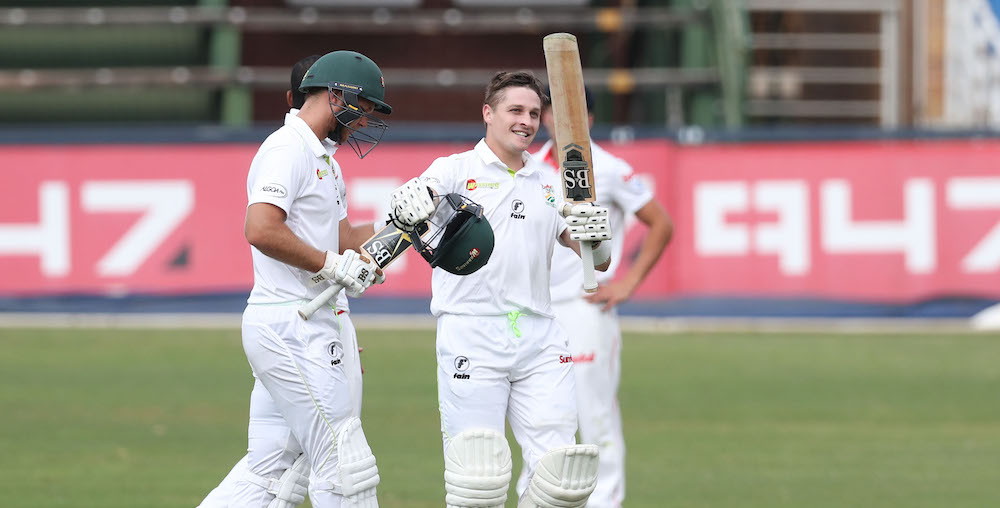
It will be interesting to see how all coaches in the country, including Proteas coach Mark Boucher, approach the upcoming season with regards to allowing players to play, especially now that we’ve had the Social Justice and Nation Building Hearings which painted a vivid picture of how players respond to lack of opportunity to play.
It’s clear that self-doubt and to some extent depression settles in on a player when starved of an opportunity to play as per the testimonies given at the SJN Hearings.
The hearings also helped us reflect on some of the decisions taken by the governing body which then affect coaches on the ground.
“Everything is interlinked. Of course. There is no way that they're not interlinked. I mean, if you look at what happens when there’s poor governance? You will lose sponsors. You’re hit financially,” said Peterson.
“Loss of talent follows poor governance as well, you’ll find players deciding – ‘should I play for South Africa or should I not?’ It can go as far as coaches going to explore different avenues around the world now.
“All these things contribute to the product [performances] you deliver on a cricket field. So does good governance have an impact? We can sit here and try and pretend that it doesn’t.
“But of course, it has a massive impact on the game, and when you cannot invest in your product, your progress remains stagnant.
“So we need to get confidence back and I think by the Proteas winning these two series[Test Series and T20I vs West Indies], all of the sudden public confidence comes back and sponsors want to come back.
“There’s a new board now, so these are all things that we need. The signs are there, but I think we still are far away from where we need to be.” Peterson concluded.
Any coach taking on a job in South Africa is faced with a variety of challenges endemic to the Rainbow nation. As challenging as it is, Coaching in South Africa reveals the ability of a coach to develop world-class cricketers.
This video was shot 31 Oct 2019
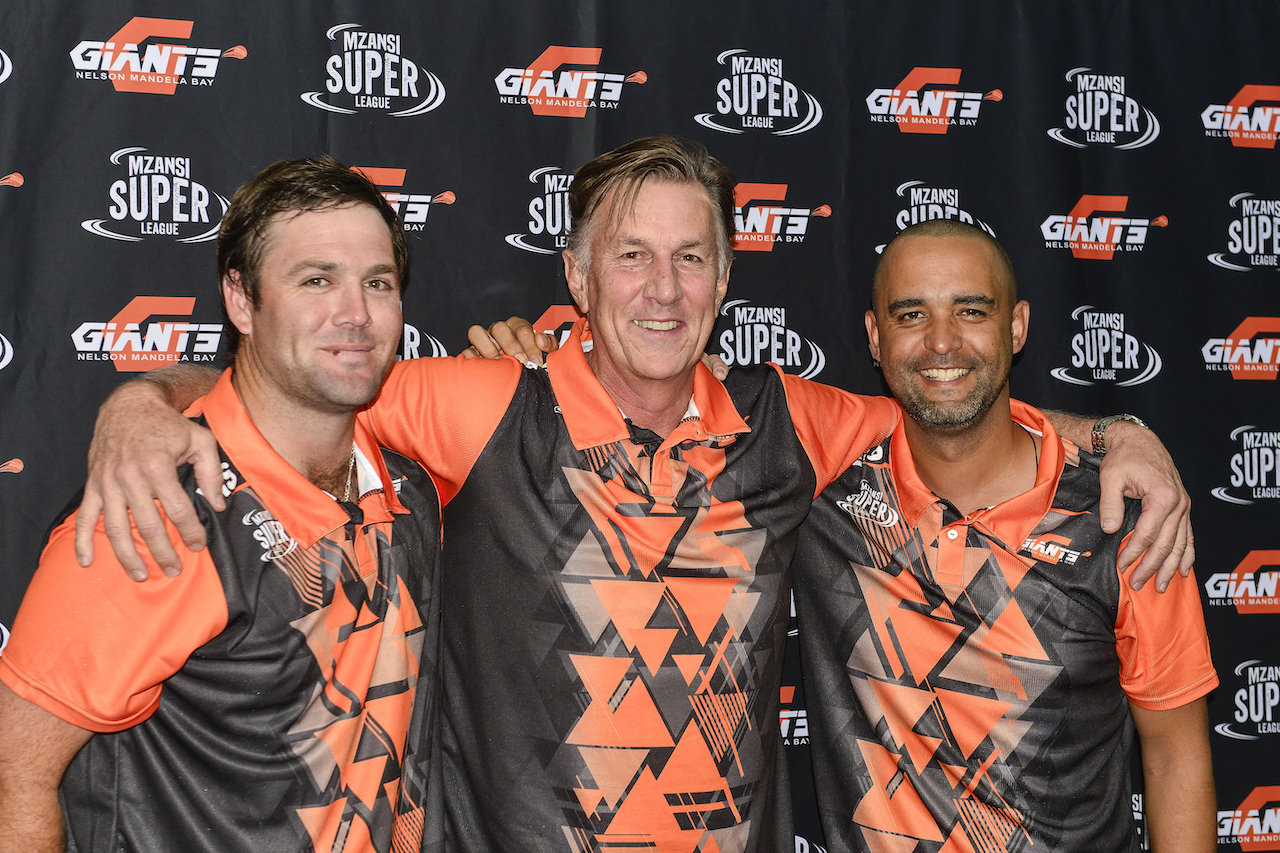
"To move a group, you need to move the individual"
By Marc Jacobson
Renowned coach, Eric Simons, has prioritised the need to focus on cricketers as individuals before the collectives can be addressed.
Although there are various layers to unpack when attempting to divulge into what constitutes all-round coaching abilities, Simons had emphasised the vitality that, as coaches, egos are not fed, but rather that they make personal strides towards “coaching the individual”.
“You need to realise that it is about the cricketer and the team. [There is much] importance about understanding the cricketer before he understands you,” Simons tells Cricket Fanatics Magazine.
“There is an importance in seeing the individual and not the team, but ultimately it’s about the person you are coaching; the modern cricketer is very individualistic.
“You need to understand how to move that individual. To move a group, you need to move an individual.
Coaches who “think they have the answers” are a symptom that flirts with failure, which also correlates with setting aside one’s ego, Simons explains.
“You need to be very inquisitive as a coach, because when you remain static and think you have the answers, then you’re basically going backwards.
“You need to constantly be testing, questioning, and moving forward. I remain very inquisitive as a coach in terms of the game, the sport and figuring things out.”
This concept of “understanding the player” prevails particularly when coaching a set-up that comprises a mix of different cultures like the Indian Premier League, which Simons has become accustomed to since he was appointed in 2018 as bowling consultant for the Chennai Super Kings.
“That’s very true when you’re coaching in an environment like the IPL. You have South Africans, Australians, Indians, New Zealanders, West Indians and Sri Lankans and they’re all very different – and how you move each one is different.
“If you go there as a South African and coach like a South African then you’re going to miss the mark on many occasions. The way you speak to each of them is very different, and it’s about moving the individual, which is one of the challenges of the game.”
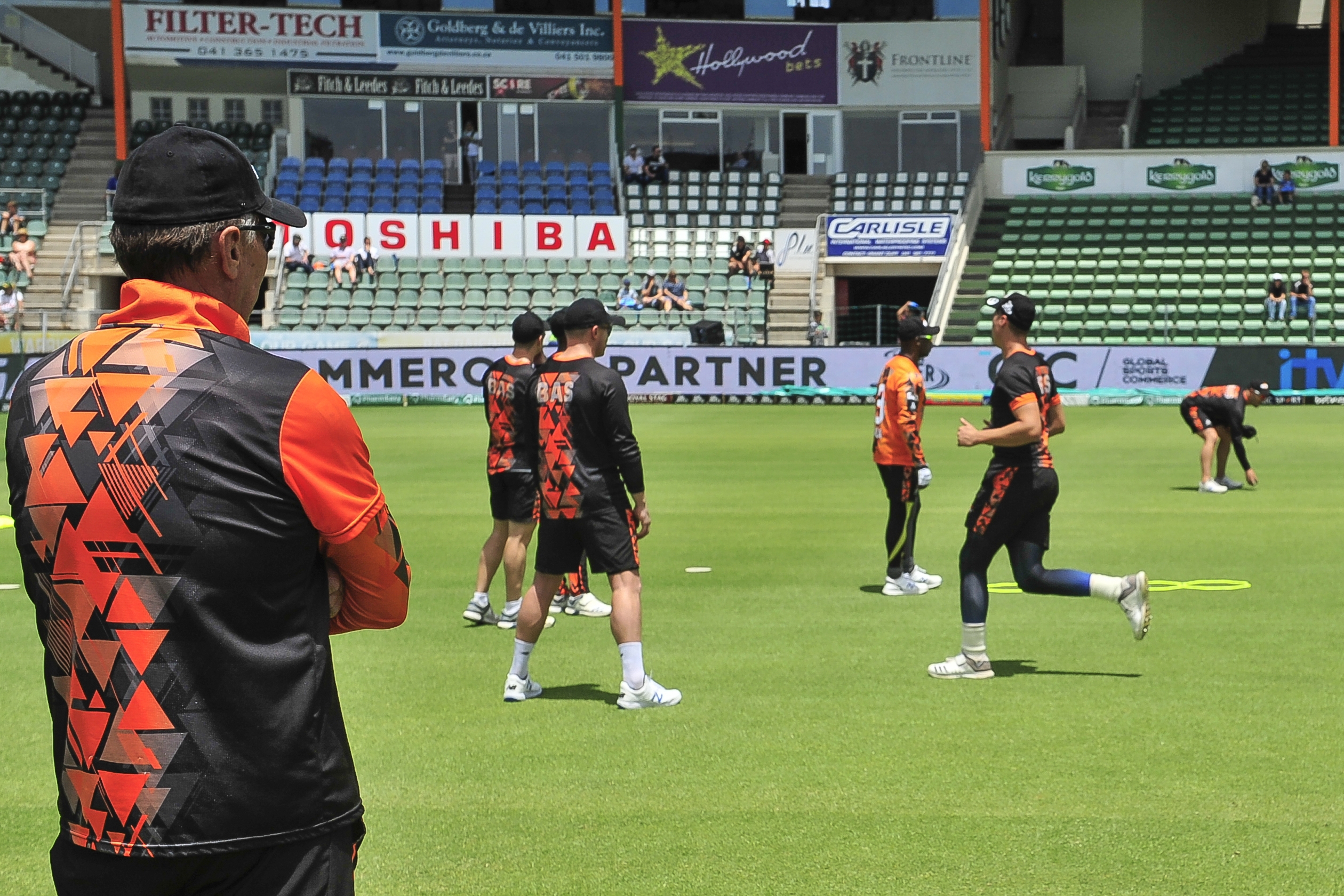
Regarding work ethic and their adaptability to different coaching techniques, Simons said the modern cricketer is largely independent in that sphere, but that they have “different ways of going about it”.
“When some players have had a bad game, they want to put the work in the nets and sort it out in the nets, whereas others trust in themselves or go to their rooms to reflect or meditate on it.
“Neither are right or wrong – that’s part of understanding who they are as players. But there are those certain individuals who you have to sort of nudge a little harder than others.”
Simons underscored the importance of impacting individuals to the point that they can work towards a common goal and become independent and self-evolving players.
“You don’t achieve much through instruction, you achieve a lot more through influence,” he says. “It’s very important to influence them to understand what you’re trying to achieve.
“If you get guys to do things through instruction, and you stop the instruction, then it stops happening. But when you influence them, then they understand it and when that individual goes or the coach leaves, they continue to be that person.”
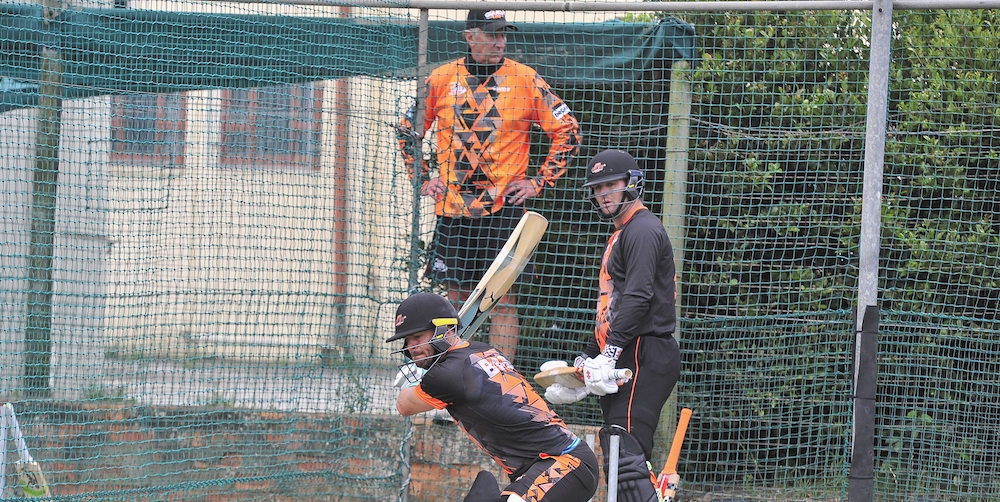
Simons, who coached the Proteas nearly two decades ago between 2002 and 2004 after having retired as a player in 1998, said the approach to coaching changes between the different levels.
The lower levels, such as in schools, receive a more technical nourishment from coaches, whereas in the professional setting it becomes “more tactical”, which constitutes various strategies and unorthodox ideas.
“I’ve become a believer in what I call internal and external coaching. When you coach internally you tell the body technically how to do it,” Simons explains. “When you coach externally you tell the body what to do and it works it out for itself.
“For example, if you have a bowler who falls over and bowls down leg all the time, you can tell him to keep his front arm up, keep his head on target, be strong at the crease and to keep his wrist in a good position to bowl at off-stump. That’s internal coaching.
“External coaching is to tell him to run up and miss off-stump by a meter, and what happens is the front arm and head stay strong and the wrist gets in a good position.
“I do a lot of external coaching, where I give instructions on what they need to do and that builds technique, rather than the other way round.”
The 59-year-old is a firm believer that players ought to “trust their subconscious” when learning and harnessing their various techniques.
“Particularly batters will talk about batting in the zone and when they do that they are trusting in their subconscious, but they practice in the conscious.
“It is, to a degree, instinctual, but to sum it up, you learn better in the subconscious than in the conscious.”
Get More Clients With Cricket Fanatics Magazine
Cricket Fanatics Magazine has the visibility, infrastructure, expertise and toolset to automate your marketing and branding.
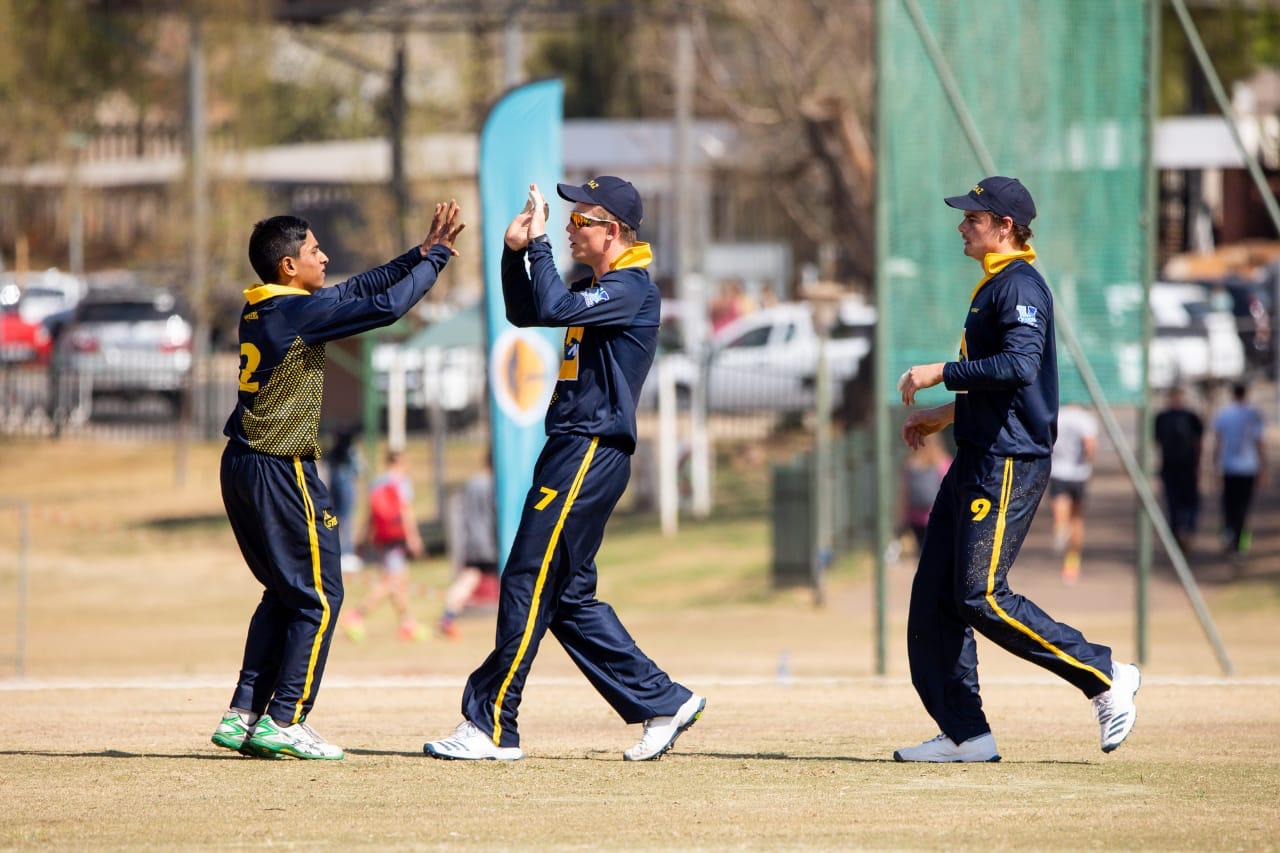
Key Factors of Being a University Coach
By Lubabalo Skhosana
Club cricket forms a very important part of any cricket system in the world because it does not only serve as a feeder but is also where professional players can go for some form of game time.
This is why it is very important for club cricket to maintain a certain standard that is not far off from that of a country’s domestic cricket.
Another important part of club cricket is University cricket. University clubs also play a massive role in the system as both a feeder and to some extent a home for players.
Madibaz Cricket Head Coach and former KZN Inland captain, Lefa Mosena speaks to us about University Club cricket.
Mr Mosena says his coaching journey began while he was still playing First-Class cricket where he decided to enrol and successfully complete his level two.
He then got a job as Maritzburg College 2nd XI coach, and was also called in by the union to be a batting consultant for the provincial age-group sides.
Mr Mosena took over as Madibaz cricket head coach in 2019 and has won the league with the PE side.
When speaking about the importance of having fully functioning clubs, Mr Mosena said an advantage that Universities have is that they offer a number of different sporting codes which leaves athletes with a number of choices.
He added: “Now all that is left is to have administrators, coaches and mentors who are willing and able to guide and expose learners to good competition and a healthy club/sport environment.
"This will help in the grooming of well-rounded student-athletes for the club and higher sports teams.”
The functionality of a club does not rely solely on administration but on players too. The level of commitment they show to the club and the level of dedication they show will always be what drives the club in the right direction.
A fully functioning club is important for the whole system because if clubs collapse the whole system will suffer one way or another.
Coaching a university club is obviously slightly different to coaching a normal club or rather a local club in that the challenges are different.
A university club is generally made up of university students only and Mr Mosena highlights what he thinks is important to remember and pay attention to when coaching a university club.
He mentions how it is important to strike a balance between studies and the sport when dealing with student-athletes.
“Too many times the drive to win matches can take away from the fact that students also need to focus on passing."
This is perhaps something that the majority of coaches that have students in their teams or that coach University clubs can agree on.
There's a big match on Saturday but two of your big players have exams or big assignment submissions coming up. The question would then always be, “Studies or league points?”
Mr Mosena answers this question very easily.
“The key factor as a university coach is to always remember that producing student-athletes is the main goal.”
The keywords being “STUDENT” and “ATHLETE”, the aim is to produce student-athletes and not just athletes.
For any coach, tapping into one’s playing experience is something that is often a need and this has been no different for the Madibaz Coach.
He however does not only rely on his playing experience as he believes that: “Cricket is always evolving so educating yourself so as to keep learning and growing, goes a long way into making sure you stay relevant and are able to communicate effectively with the new generation of cricketers."
Even though his playing experience forms the foundation of his coaching he still believes in the importance of expanding your knowledge of the game as a coach and keeping up with the times.
As mentioned above, a healthy club cricket standard is important for the standard of domestic cricket because club cricket is a feeder to domestic cricket.
Education is important, University clubs have a role to play as a feeder as well to the system. Up and coming youngsters are signed by University Clubs and are enrolled at those universities to further their studies.
The presence of university clubs then provides these athletes with an opportunity to still play the game while studying.
A number of well-known cricket stars have come through the ranks of Madibaz cricket. Names such as Lutho Sipamla, Anrich Nortje, Edward Moore, Sisanda Magala, the list goes on.
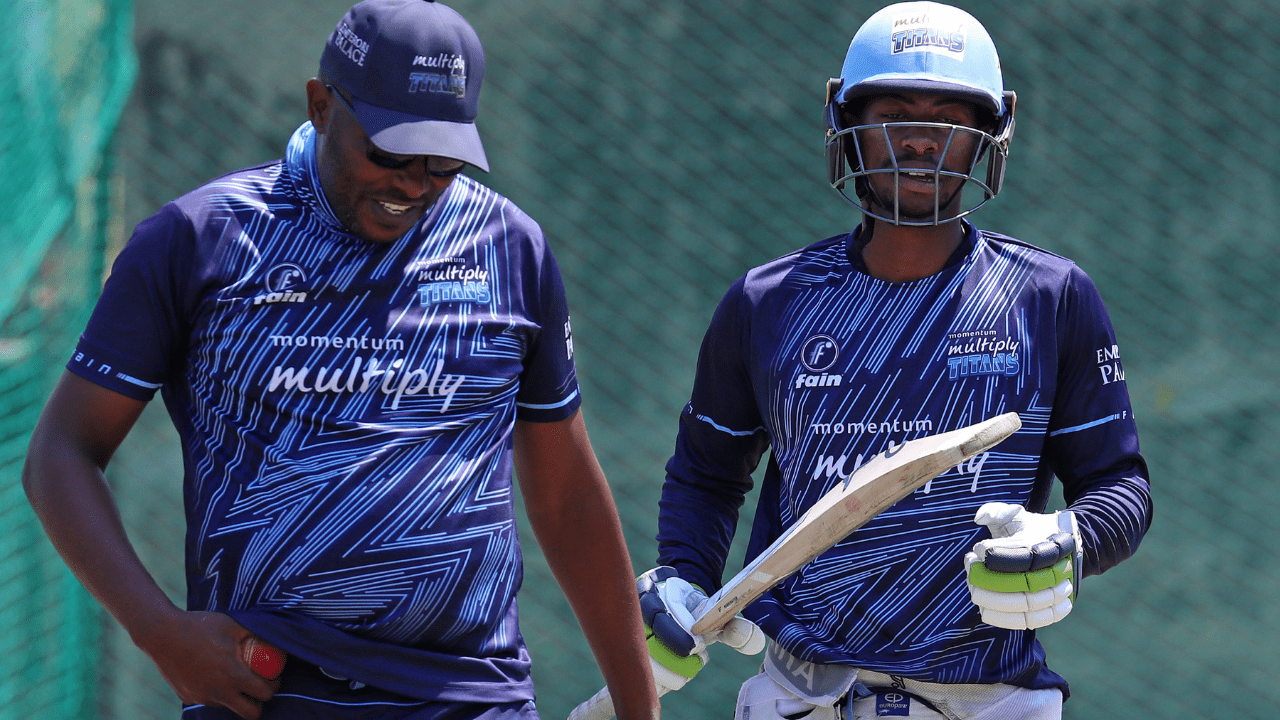
The Coach-Player Relationship: Closer, Sharper, Better
By Chris Chiwanza
When speaking of the arrowhead plant, biologist Edward O. Wilson said this:
"When it grows on the dry ground it produces an elephant-ear leaf.
In shallow water, it puts up leaves that look like lily pads.
"If grown in deep water, it develops slender leaves like eelgrass, sort of seaweedy ribbons.
"The environment awakens something in the plant, freeing it to transform into the shape best suited to its surroundings."
Athletes are not too different from the arrowhead plant. Consider the story of these three basketball players.
The first one was criticized for being lazy, party-oriented, and overweight in the period between 2008 and 2012 when he played for the Charlotte Hornets. During the 2011/12 season, a second player came under fire for malingering, after it was discovered that he was allegedly faking a hamstring injury to avoid playing. He was released by his Chinese team, Xinjiang Flying Tigers, for these unsportsmanlike offences.
Player number three was cut by the Cleveland Cavaliers, in part, for his casual approach to team defence
It is safe to say that no coach would want any one of them in their team. For all intents and purposes, these three players were disruptors of culture and the dressing room environment. Cancers is another term that could be used.
Therefore, it would have been safe to assume that when the trio joined the San Antonio Spurs in 2012, at least one of them or all, would continue to be disruptive.
Yet, not only did that not happen, but Boris Diaw, Patty Mills and Danny Green didn't just change into completely different players and individuals, they won the NBA Championship in 2014.

What happened to them? What brought about this change that saw them become more dedicated, passionate and selfless players? Gregg Popovich.
Popovich's attitude towards players is simplified by his motto, “Hug ’em and hold ’em. We gotta hug 'em and hold 'em."
"A lot of coaches can yell or be nice, but what Pop does is different. He delivers two things over and over: he'll tell you the truth, with no BS, and then he'll love you to death," says Chip Engelland, the Spurs Assistant Coach.
Off the basketball court, out of the dressing room, Popovich makes connections with players over a dinner table. His vehicle for growing intimacy is a meal and wine. His teams have team dinners, then regular gatherings of all the players.
Then there are smaller group dinners, handfuls of players getting together. Then there are the coach’s dinners, which happen every night on the road before a game. Popovich plans all of them.
He just doesn't interact with them in groups, he also makes time to have personal conversations with each player. He learns enough about them to know how to get through to each individual.
"Food and wine aren’t just food and wine. They’re his vehicle to make and sustain a connection, and Pop is really intentional about making that connection happen,” says R. C Buford, the San Antonio Spurs CEO.
While Popovich, obsessed with food and wine makes a lot of connections on the dinner table, South Africa Cricket Academy and South Africa A lead coach Malibongwe Maketa makes his connections over countless cups of coffee.
"For players to deliver for you, for them to help you to achieve your goals for the team, they need to trust you. The individuals in your team should trust you and know that they can trust you," Maketa explains.
"And to build that trust, you need to try to know them, know everything from their background to what makes them tick. Not only that, but you should also open up to them. Share parts of yourself with each player. Engage with them, make the conversations a two-way street. Build relationships."
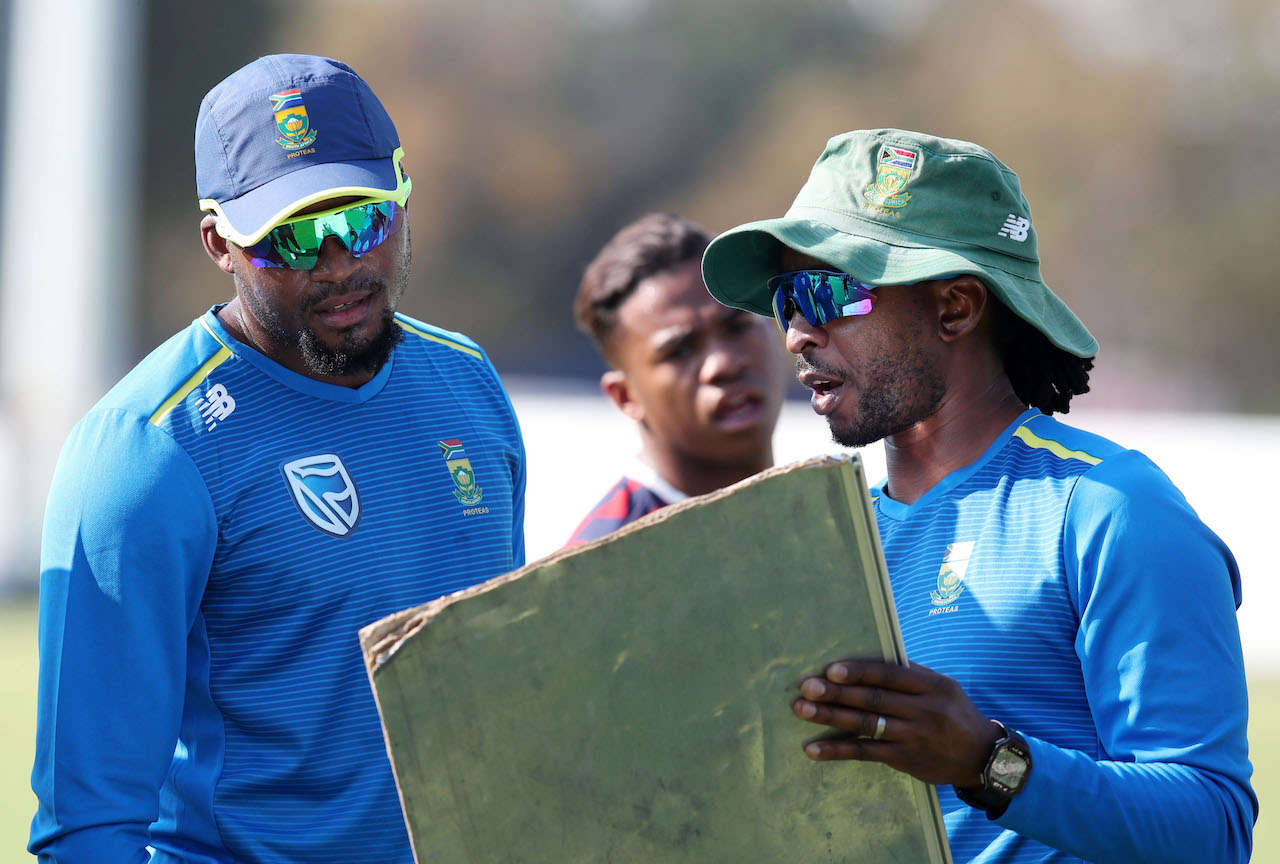
When you build relationships, when you create these intimate bonds, the expectation is not for the player to adapt to the coach's requirements. It is for the coach to adapt to each player's emotional needs.
That way, the coach will know which buttons to press in different situations to get the best out of the player. At the end of the day, it is not about the coach, but about the player.
Human beings share common needs and tendencies, but we express these needs and tendencies in infinitely different ways. Therefore, a leader who recognizes and adapts to the unique needs of each person can unleash skills and talent that boost performance.
In 2019, Loughborough University Professor, Sophia Jowett published a paper titled "Coaching Effectiveness: The Coach-Athlete Relationship At Its Heart".
In the paper, she puts forward that the effectiveness and success of coaching reside within the coach and the athlete, and the unit relationship they develop.
This is because the player-coach relationship is a social situation that is continuously shaped by interpersonal thoughts, feelings and behaviours of the coach and the athlete.
The relationship is the medium that motivates, assures, satisfies, comforts, and supports coaches and athletes to enhance their sport experience, performance, and well-being.
Numerous other studies show this to be true.
A 2017 study published by the European Journal of Sport and Exercise Science found that a strong player-coach relationship resulted in higher motivation, performance, satisfaction and passion levels as well as better support and psychological wellbeing.
Two scholars, Bernie and O'Connor analysed coach-athlete relationships in rugby union, rugby league and cricket in Australia, and their studies drew the same conclusions.
The idea of players and coaches having such strong bonds and relationships is often viewed with scepticism: many fear favouritism resulting from such unions. But, cricketers interviewed by Bernie and O'Connor repeatedly said that it is better to be dropped from the team by a coach the player is close to than one who is not.
When there is that relationship, it is easy to not overthink the action and also easy for the player to accept constructive criticism and that, at the moment, it is the best thing for everyone involved.
The healthier the relationship between player and coach, the more a player feels that they have the backing of their coach.
As Imperial Lions bowler Nono Pongolo says, " [A coach's] Backing is one of the biggest parts for a player to succeed. It shows you the belief a coach has in you. It's that belief that gives you the confidence to go out there and be yourself."
As it has been said before, players want to know three things about a coach: Does the coach care about me? Can I trust the coach? And can the coach make me better? If a player can answer these questions with a "Yes" that is without doubt or hesitation, then the coach will get the best out of that player.
But, on the other hand, if they cannot positively answer that question, the player's attitude will be one that can be summed up as saying, "Why should I care about what you want from me or your goals if you do not care about me or my goals?"
As one of South Africa's most successful coaches, Geoff Toyana, says, "Coaching for me is about understanding each and every player that you work with. Understand them as people first, touch them deeper.
"Players must feel that they have your backing and you trust them. It is only then that they will play for you. Make them feel that you value them in good and bad times (they must not be scared to make mistakes), provided they learn from them.
"The bottom line is that they will fail. The danger is when you start having favourites in your squad, and players can pick that up and they will repel from you."
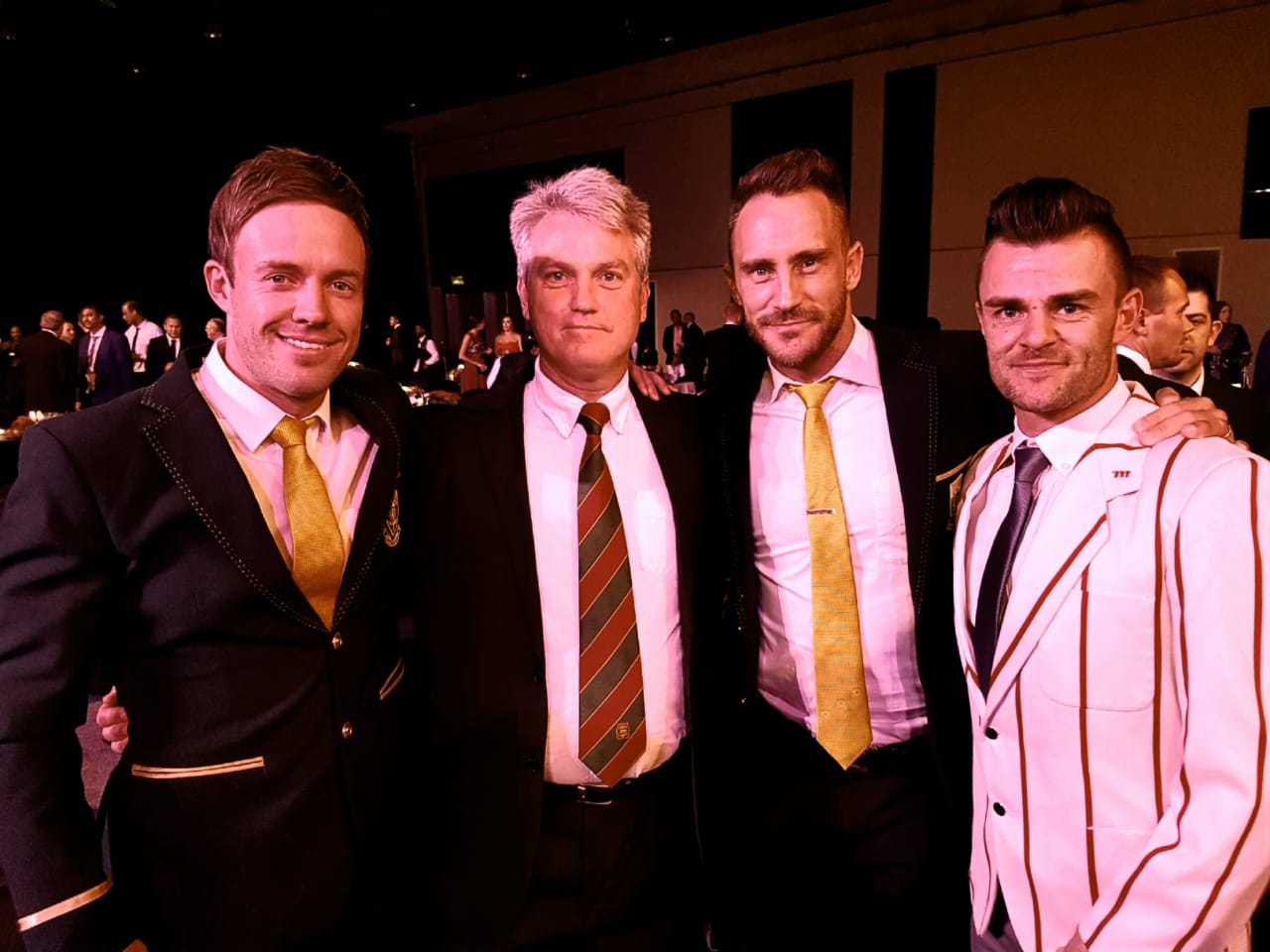
Preparing School Cricketers with Deon Botes
By Aditya Mehta
Deon Botes is among South Africa’s most celebrated school cricket coaches.
Currently in his 23rd year at the Afrikaanse Hoër Seunskool, fondly known as Affies, Botes has overseen the rise of international cricketers such as AB de Villiers, Faf du Plessis, Jacques Rudolph, Neil Wagner, and Heino Kuhn.
Botes started his career at Affies in 1998, and was appointed coach of the first XI cricket team in 1999. Despite the trials and tribulations in South African cricket at present, Botes remains confident in the talent that the school cricket system is producing.
“Cricket is still very strong in our schools. If we play against any other schools in other countries, we’ll actually do very well,” confidently remarked Botes.
Botes finds that school children are more likely to pursue cricket professionally today compared to twenty years ago.
“Out of experience, we get more kids that actually think about cricket as a career after school.”
Botes attributes the surge in the number of school cricket players, to a certain extent, to the risk of injury that comes with playing rugby.
“Predominantly, rugby was the big sport in our country and obviously with all the injuries that kids pick up in rugby and so on, kids are looking for other sports, and cricket has benefited from that.”
Faf du Plessis is an example of such a player, having injured his wrist playing rugby, which led to him missing two months of the cricket season.
When Botes was appointed coach of the Affies cricket team, international cricketing teams only played Test and One-Day International cricket. A central feature of Botes’ narrative is his ability to adapt to the way cricket is played in the modern era.
“For the T20 format, it’s more about giving players more freedom to execute a variety of skills and not just sticking with doing things on a solid basis. What it comes down to is that bowlers need to have more variations and you actually encourage them to use the different variations, where in declaration cricket you use it a bit less and the same in 50-over cricket.
"But in T20 cricket, you actually encourage players to play paddles and reverse sweeps to take on the bowlers whatever the situation.”
However, Botes still believes the role of the school coach is to teach the basics, which explains the importance he assigns to teams playing declaration and 50-over cricket.
“I still think that a player that is technically good and has a lot of talent playing cricket will make it in all three formats. I do think our role is to prepare a guy to play 50-over cricket, Test cricket, and if he makes it in those formats, then he’ll probably make it in T20.”
Affies is among a small group of elite schools across South Africa that equips young cricketers with the skills to become international cricketers. It is worth asking if Botes imagined that de Villiers, du Plessis, Kuhn, Rudolph, and Wagner would make it at the international level.
In 1999, when Botes took charge of the first XI, Rudolph was the captain and had already played provincial cricket.
“Obviously, with him, it was quite easy to think – you know what, Jacques would make it someday. In my first year, I thought Jacques was a terribly good player in any case,” reflected Botes.
Botes’ emphasis was largely on ensuring that his players were well-trained as opposed to worrying about the possibility of them playing at the international level.
“Our focus mainly was on developing players and whatever happens happens.”
The wisdom of Botes’ approach is apparent, given de Villiers’ meteoric rise in the South African domestic system soon after he matriculated from Affies.
While there has been an increase in the number of school cricket players interested in professional cricket, many of them, particularly those with foreign passports, are also seeking opportunities overseas in countries such as England, Australia, and New Zealand because of the lack of opportunities in the South African domestic system.
Botes explained, “Our biggest concern is to lose a lot of players because we don’t have enough opportunities. That is part of the reason why a lot of our players are leaving to play in other countries. If we have only six sides, our base isn’t wide enough to absorb all the talent we’ve got.
"For example, Neil Wagner probably wouldn’t have made it if he stayed in South Africa. I don’t think he would have made the Titans at that stage, which was very strong. It had the two Morkel brothers, AB, Faf, Dale Steyn.”
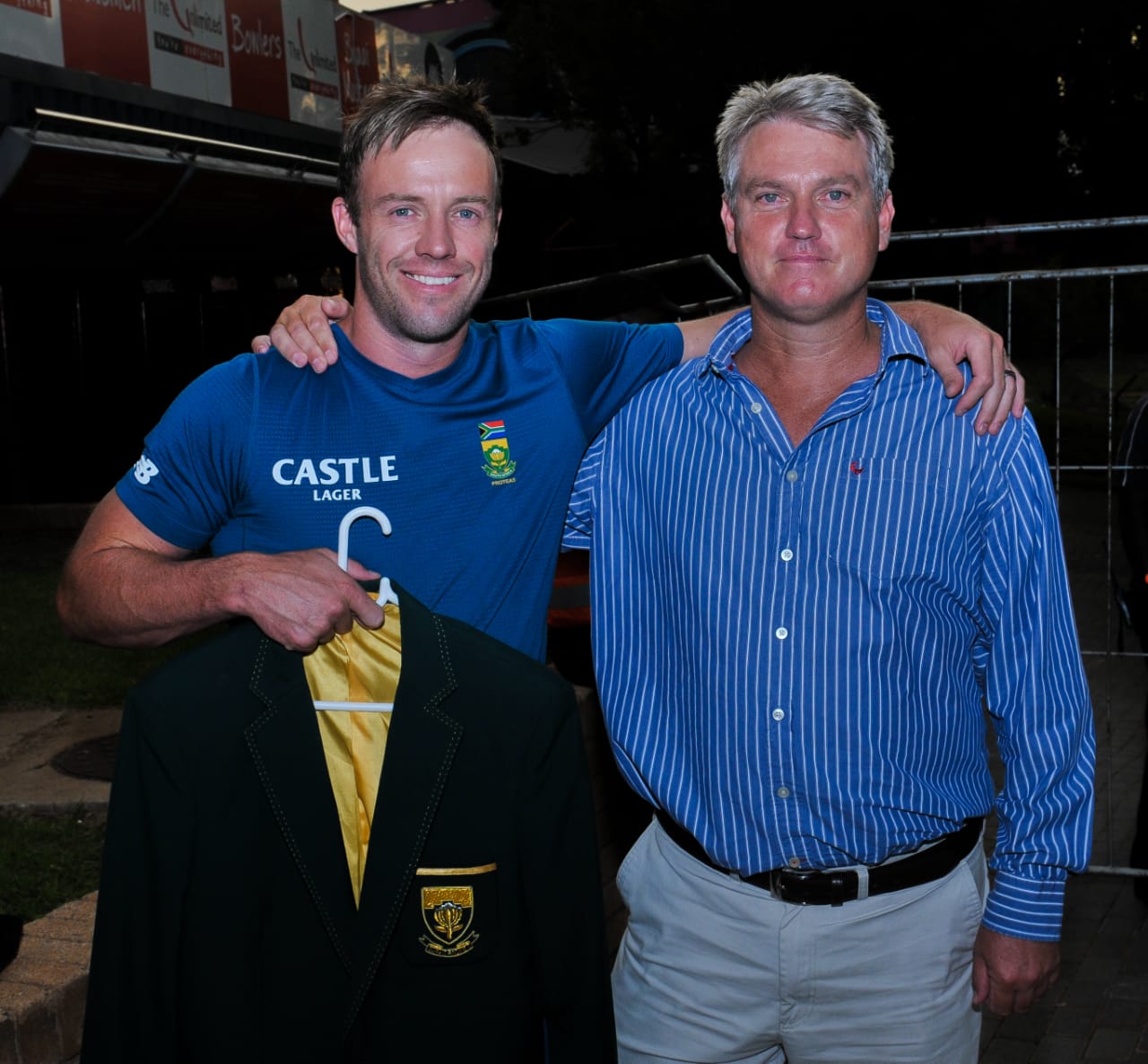
Over the last few years, particularly since South Africa lost a number of players to retirement, the domestic system has come under the scanner. The recently announced two-division restructure is a product of five years of deliberation at Cricket South Africa.
Given that the school system is still producing talented cricketers, Botes believes the two-division system will offer players more opportunities to play competitive cricket, and will help retain talent in South Africa.
“In the province that I am in, it’s a very competitive province in terms of schoolboy cricket. We have 6-7 very good cricketing schools. To pick one side out of them, and then you still in the Titans franchise, you have to compete with three other provinces.”
With the talent on offer, it is imperative to field more teams to give players the opportunity to play professional cricket.
“I think the whole idea of broadening the base is to help get players from different areas to actually carry on with cricket and actually pursue cricket as a career,” said Botes.
South Africa’s school cricket infrastructure has made significant contributions not only to the South African national cricket team but also to world cricket.
AB de Villiers and Faf du Plessis have achieved superstardom with their feats for South Africa, but neither South African cricket nor fans should forget Deon Botes’ role in turning talented players into all-time greats.
Advertisement
Ezra Poole's Online Wicketkeeping Academy
Learn how to Master The Craft of Wicketkeeping Without Having to Hire a Full-Time Personal Coach.
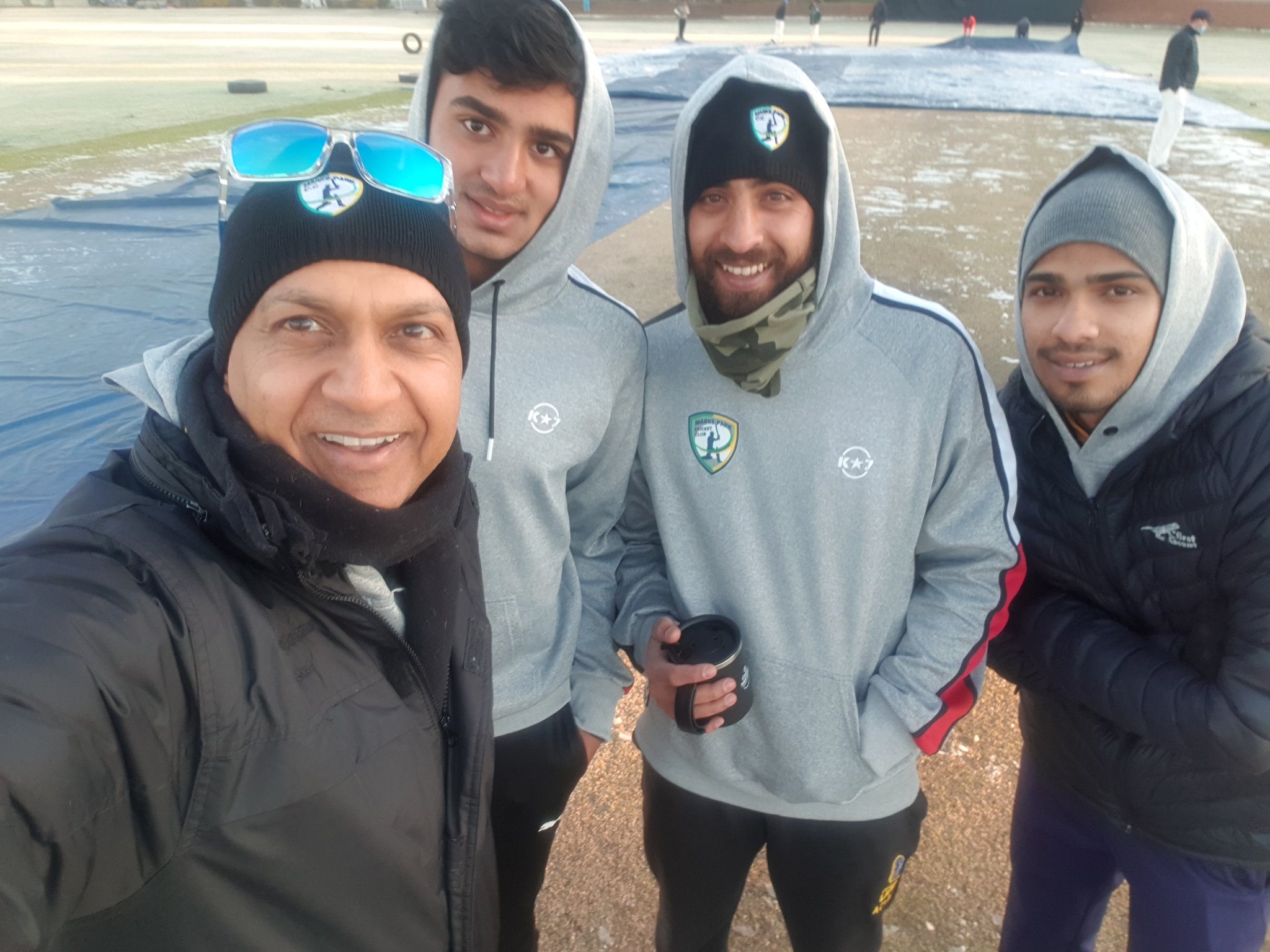
Young cricketers need to cut their teeth at club level
By Keanan Hemmonsbey
In his youth, during Apartheid, Hussein Manack represented Easterns and Gauteng but could never aspire to dreams much further than that as he would never be allowed to represent South Africa because of the colour of his skin.
This has inspired Manack to provide an avenue for local cricketers of all backgrounds to aspire to the summits of cricket.
“I’m the head coach at Marks Park cricket club, which is one of the biggest clubs in Gauteng, in the Gauteng Premier League. It’s a very non-racial club, it comes from a previously disadvantaged background we’ve got a big variety [of players]. We are a very inclusive club. Very mixed, very inclusive, very non-racial,” he says.
Cricket is everyone’s game
Club cricket is probably one of the least glamorous local sports. A crowd of 50 people is rare to see, even at a first-team club cricket match. However, Manack, the former Proteas national team selector and current head coach of Marks Park cricket club, believes that every young cricketer, that aspires for higher honours, should cut their teeth at club level.
The nature of club cricket is that players often umpire their own matches, opposed to schoolboy cricket and domestic cricket where there are third parties or coaches umpiring.
Manack believes that because of this “club cricket toughens cricketers up” and is a vital cog in preparing cricketers for the challenges of climbing up the provincial ladder. “Club cricket plays a huge role in developing cricketers, particularly for the highest level,” he says.
The importance of club cricket cannot be understated. It is possibly the only place where a former international cricket player and a 15-year-old high school student can bump shoulders.
“At club level, youngsters could be playing against 25, 35, 45-year-old ex-provincial or maybe even former international players. That type of experience is invaluable,” says Manack.
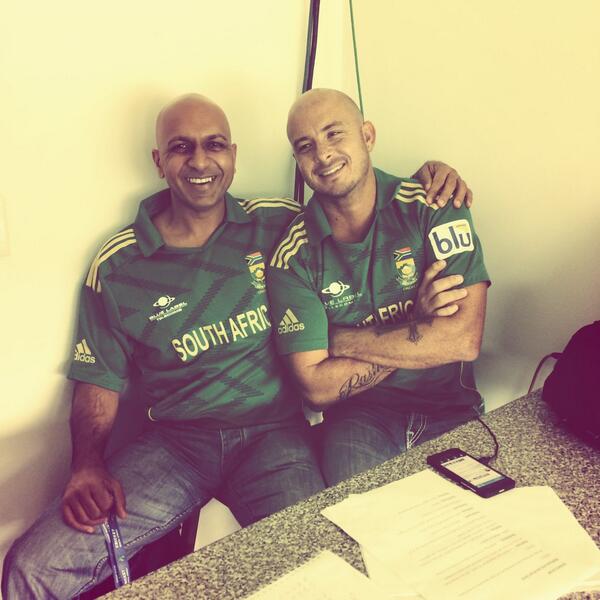
From club to country?
Many young cricketers are often hesitant to play club cricket, especially when they would much rather be playing domestic cricket. Not because they believe there is no value in it but because there has rarely been a pipeline for club cricketers to go through the South African cricket system, all the way to the pinnacle of playing for the Proteas.
“At the moment I don’t think club cricket plays that important role overall in South African cricket. I think that’s where Cricket South Africa (CSA) have got it wrong. They’ve missed a trick there. They need to bring club cricket into the pipeline,” says Manack.
Manack, however, believes this is beginning to change. “I think cricket boards are beginning to understand that you can’t allow a young school cricketer to just play school cricket, even if they play SA under-19, and then walk straight into a provincial set-up without having played club cricket.
"I think you’re doing that young cricketer a disservice and you’re doing cricket in South Africa a disservice because we’re not toughening up those youngsters before they go and play at a higher level,” he says.
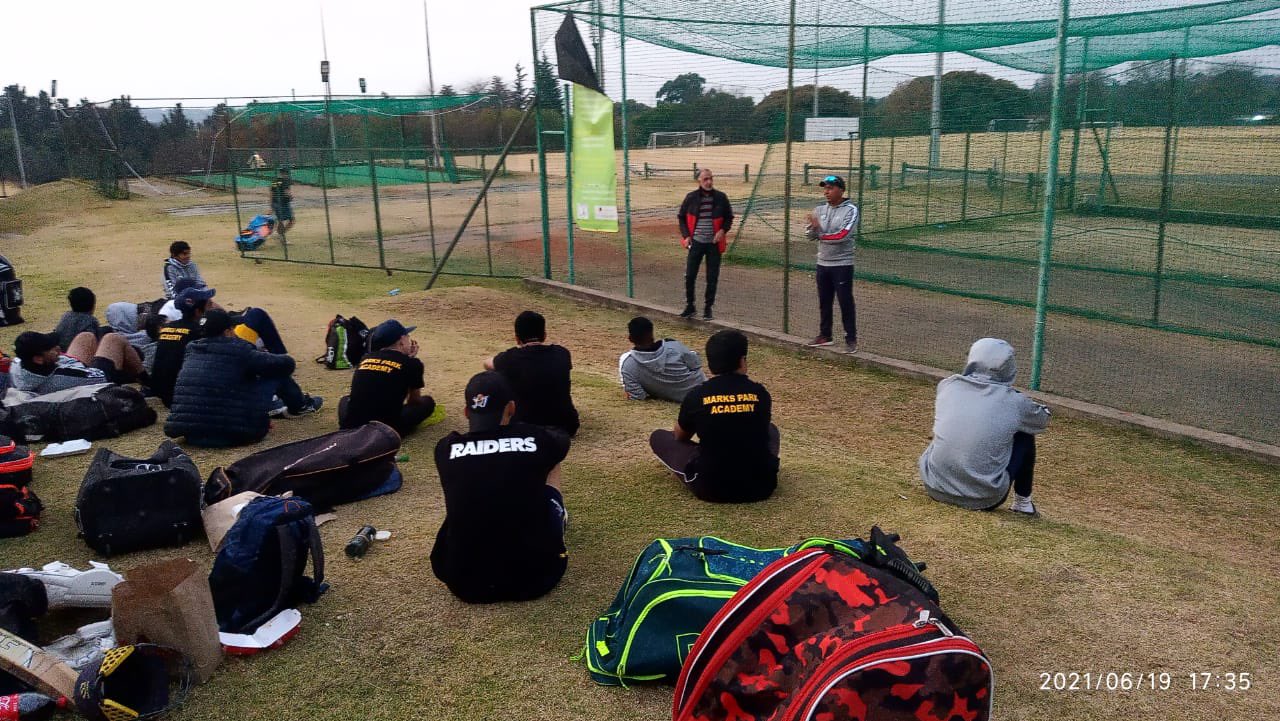
Shaking things up
The next provincial domestic season will see a restructure with the game moving from six franchise teams to 15 provincial sides. Manack believes that the restructure was much needed in South African cricket.
“I think it’s going to create opportunities. I do think it needed to be done, the game needed to be spread out to all the provinces. I still don’t think it’s a perfect system, there’s a lot of work that needs to be done,” he says.
The work needed to be done is the fundamentals of building successful squads, according to Manack.
“From a high-performance point of view, and a talent identification process. I think there’s work to be done,” he concluded.

Q&A: Claire Terblanche on Test Cricket
You used to do ballet and have a black belt in Judo. How did you know Cricket was your calling?
Well, ballet I did because my mom really wanted me to do it but it was a way I could get into Karate (Same hall as Ballet) but ultimately when I moved schools, I ended up being really good in Judo.
Wasn't really a choice to choose cricket, as it was more a goal to get my National colours and Black belt in Judo while still playing cricket and I achieved both of those goals.
My Sensei knew that I'd be in cricket one day, so essentially cricket has always been in my blood and nothing was going to stop me once I decided to completely follow my heart.
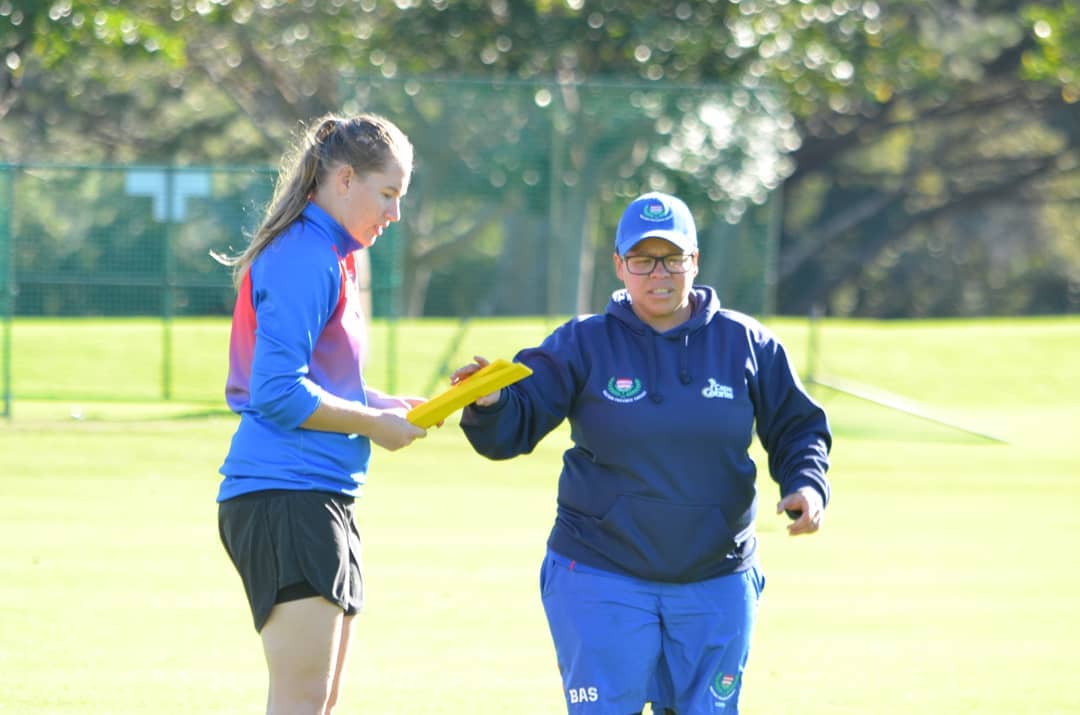
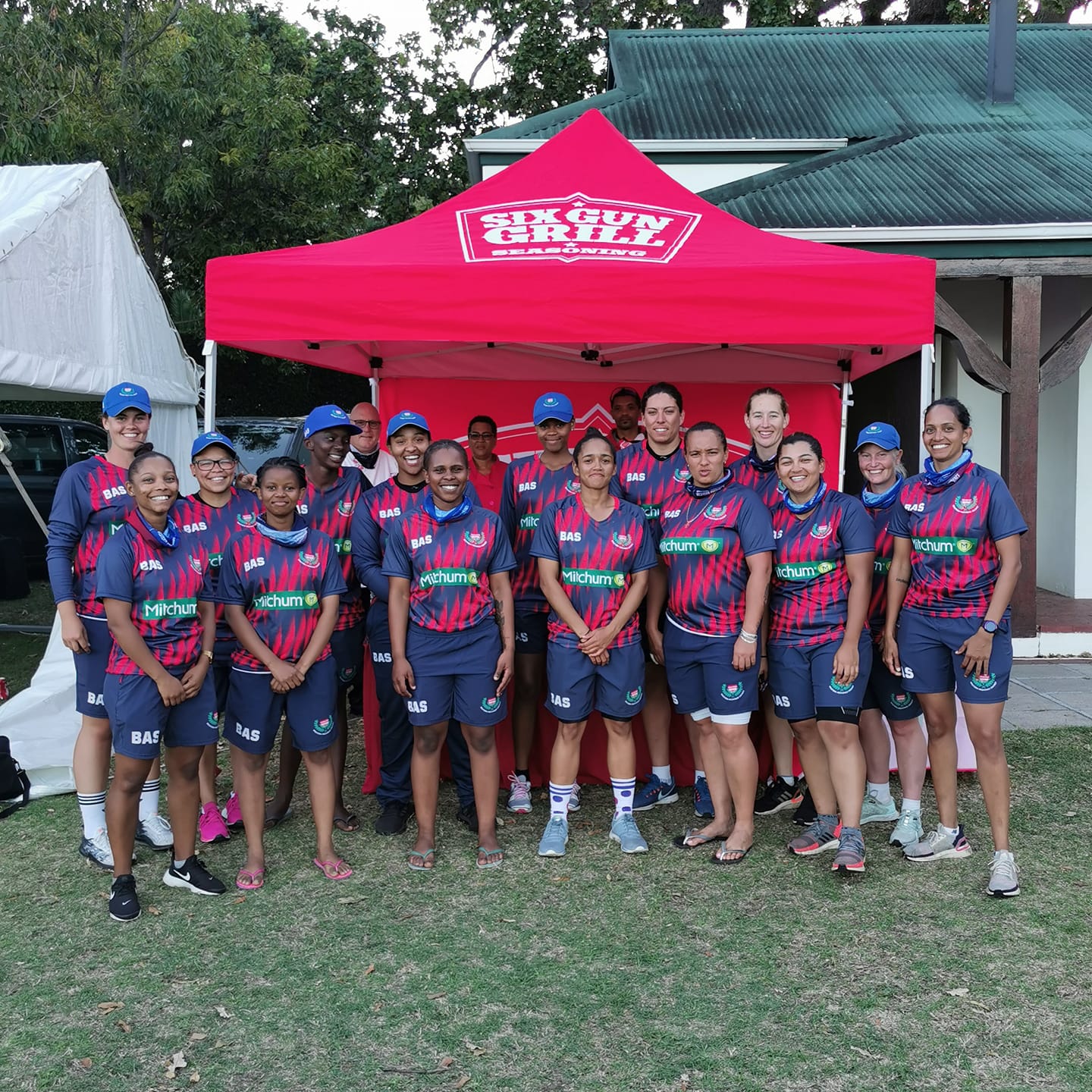
How did you come to be the Women’s and Girls Pipeline Head Coach?
The position became available 3 years ago, after the tragic passing of Coach Cobus Roodt who had done great things with the team over the years.
I applied, got shortlisted and had my interview and about a week later received my appointment phone call from Mr Nabeal Dien and so my journey with WP started in June 2018.
What is your motto as a coach?
Kindness... I believe that kindness can bring about growth, openness to learning and listening, increase trust between people and can help make players/coaches become better all round people - All through just being kind.
What are the top 5 songs in your playlist that hype you up?
Panic at the Disco - High Hopes
Panic at the Disco - Greatest Showman
Fall out Boy - Thanks for the Memories
Tiesto - The Business
Tiesto - Boom
Having played a Test in your International career, what is the kind of mental/physical preparation needed before a Test match? Is this different from the limited formats?
Yeah, I've played in one official Test but had to prepare for many... There wasn't much difference in preparing as we played Red Ball cricket at Senior Provincial level... I was an opening batter and the same characteristics are needed in a Test match as what was needed in a 50 over match - Patience, courage, tight fundamentals upfront with the new ball, knowing which line to play at and which to leave... and obviously taking responsibility to be the one to set the innings up and bat through.
Although nowadays, our ladies play a lot of White ball cricket and play a very attacking brand of cricket. There would need to be a change in how we would play the red ball game with regard to how a player would pace their innings and set themselves up because there is so much more time.
Also needing to face more red balls as it swings a lot more than the white ball, so slight adjustments in timing would be needed - Especially upfront with the new ball. I could go into so much more about this topic but let's leave it there
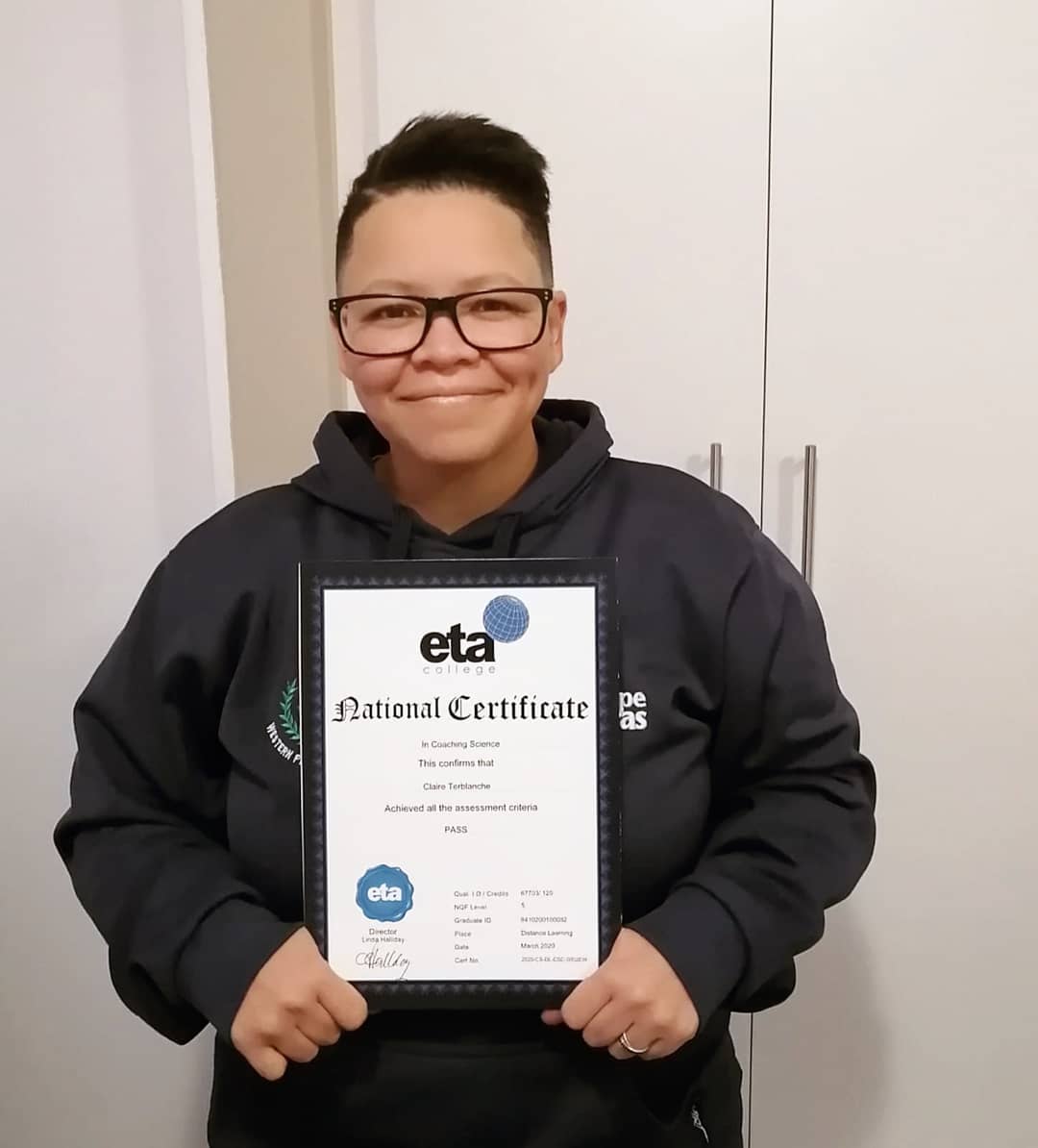

When did you decide to go into coaching?
I was still playing Senior Provincial and International cricket when I started with my coaching levels - Andre du Plessis saw something in me, more than just being able to play the game and he got me in to High Performance Coaching and mentored me along the way, still to this day he is around helping me and encouraging me.
8. What is the importance of the KFC Mini-Cricket festivals for involvement and development of young girls and boys getting into the game?
The KFC program is so very important as it doesn't only introduce the game to younger players but also gets coaches involved at junior school level, across the country.
The mass participation and fun of the KFC program has become so evident and exposes kids and adults alike to the beautiful game of cricket. Whilst learning how to be in a team and share in both wins and losses as a team - this way we teach growth and rules of the sport and in learn valuable life skills.
Were it not for cricket, which other career(s) would you have pursued?
So, I would've either gone in to teaching (Cos I'd still be able to coach) or Dietetics, where I'd still be working and dealing with people
Favourite Cricket player? Female & male
Jonty Rhodes - Male
Sophia Dunkley - Female (Stayed unbiased on this one 
Who motivates you most?
My Grandad was my biggest motivator, my biggest supporter - when he passed on, my whole family stepped in and I find the support of my family my greatest motivator.
Take us through a typical day as the Pipeline Head coach
This is my typical day in the off-season... During season gets a lot busier as can be expected
06h00: Wake up for gym
06h30 - 07h30: Gym
08h00 - Breakfast etc
09h00: Pick up player for a morning skills session
10h00 - 12h30: Group Session with HP players
13h00 - 15h00: Admin work completed, have lunch at my desk.
15h30 - 16h30: Light weight training before team gym session (Monday and Wednesdays)
17h00 - 19h00: WP Womens Team gym and SAQ sessions (Monday and Wednesday).
19h15 - Leave to head home.
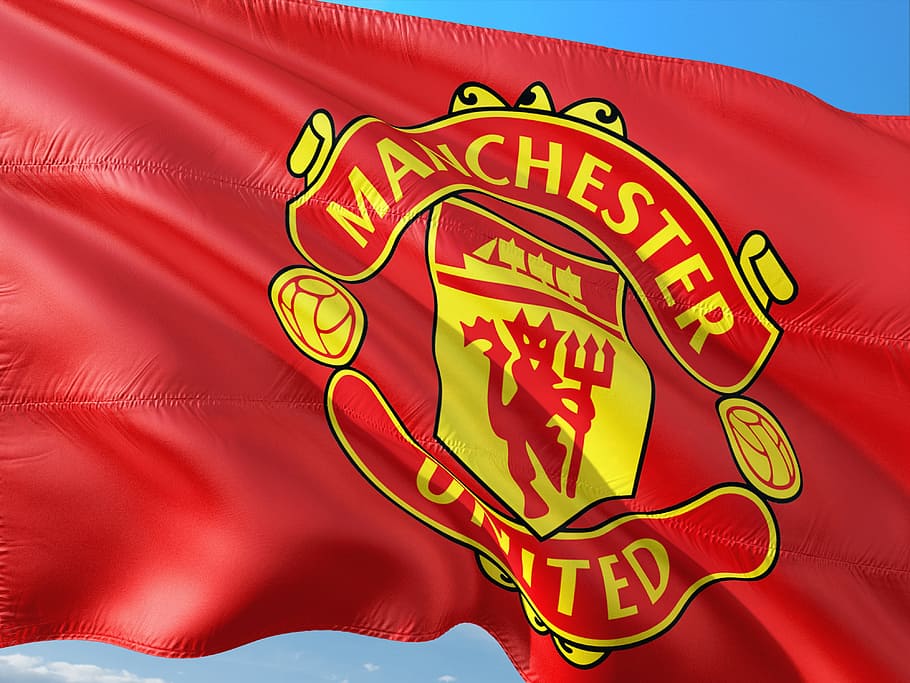
Manchester United or Liverpool?
Glory Glory Man United!!!
What are your thoughts on the importance of the development of players at grassroots level?
It is extremely important, for me, it is the most important area of our pipeline. We need to develop more quality coaches that would like to stay developing players at grassroots and not have a need or want to move to higher ranks, right away.
In this way, we develop our players and our coaches with solid foundations, thereby creating a turnaround of both quality players and coaches as people move up to the next level over time. I know it's easier said than done but it'll be fantastic for the growth of our game as the development of fundamentals will have been tightly instilled and that's a great start.
What do you do to relax?
Netflix Series, Watch Cricket (Women's and Men's), Hike, Build Lego, go fishing when I can and play some golf if I have partners
As a coach in the domestic structure, what is your opinion on the importance of preparing players sufficiently for Test format in both the men’s and women’s game?
The men's structure already allows for the red ball game to be practiced and played. At National Weeks, the boys have time cricket, which later evolved into 3 day cricket in the Senior Mens space and 4 day in the Franchise space (That's how the Senior space used to work). Mens club cricket also used to have 2 day cricket at the amateur level.
Women do not play enough test matches and the systems have been adapted to allow for more white ball cricket to take place but only at Senior Women's level. Clubs and National weeks still get played with a red ball but no multi-day format.
If we have anything to go by the recent Test match - Eng vs India - Test cricket has definitely had an awakening in the women's space and the players want to play the format, to me it's still the purest form of the game and really tests players overall skillsets.
How important is the team dynamic?
Very important, a team without a positive dynamic that everyone agrees on and works towards can become a toxic space. It's about trust in each other that creates a safe dynamic and space - which goes back to my philosophy of kindness.
17. The CSA pipeline focuses on talent identification. What would you do in a situation where a player is 100% committed to training and development, is punctual and focused, works hard to achieve results, but lacks the sought-after talent?
Keep working with that player, keep being honest with the player about where they are along their game/path. We don't dictate opportunities but we can prepare the player as best we can, to be ready for when an opportunity arises. Talent isn't always what nudges players ahead, it's what you do with the talent that you have that can create the opportunity for you.

Adrian Birrell
Adi Birrell started coaching in a very different era, in the 1980s. He was 24 and things were very different back then.
So, it's safe to say he has seen it all.
From coaching kids without equipment and proper facilities in the townships to taking Ireland to the 2007 World Cup and then now at Hampshire County Cricket Club, Birrel has coached at every level.
We chat about his journey, his philosophy and beliefs.
Offside Maidens
Daily Show | Let's talk about it
Video Playlist
The Podcast Live Show:
Exclusive Interviews
Crossword Puzzle
Grab Bag – South African Cricket!
ISSUE 13: Crossword Answers
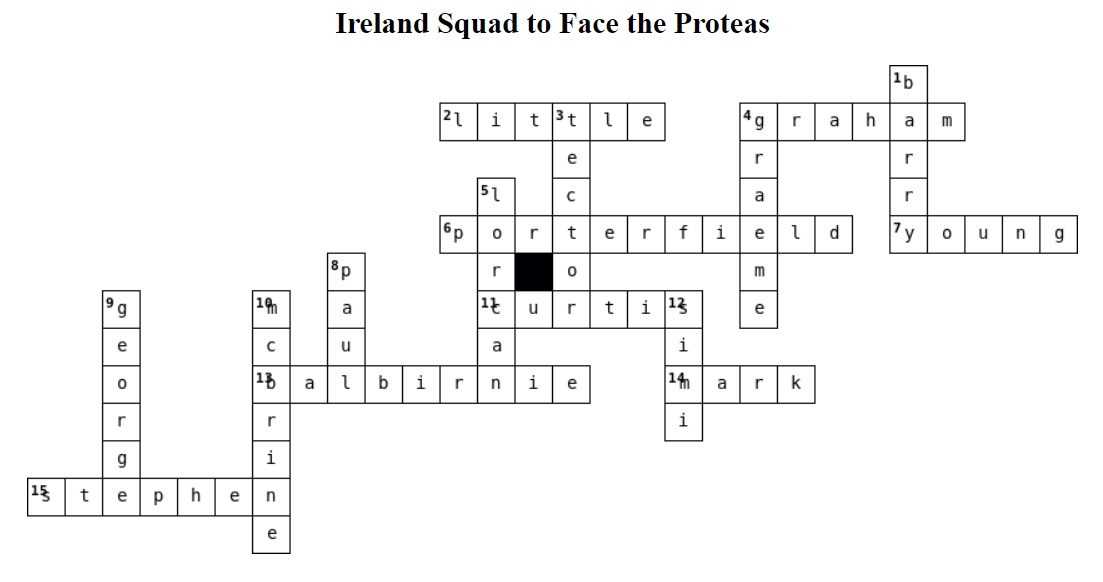

Magazine info
Editorial Director
Khalid Mohidin
IT and Technical Director
Faizel Mohidin
Contributors
Abhai Sawkar
Aditya Mehta
Chris Chiwanza
Emily Norris
Jessica October
Janine October
Khalid Mohidin
Licia Woods
Lubabalo Skhosana
Marc Jacobson
Ongama Gcwabe
Tara-Lee
Graphics
Khalid Mohidin (Cover and Graphics)
Mohammed Hoosain (CFM logo)
Images
BackpagePix
Supplied
Twitter
Facebook
Video Binge List:
On Lockdown Series
The Podcast Show
Legends with Ravi
Daily Show
